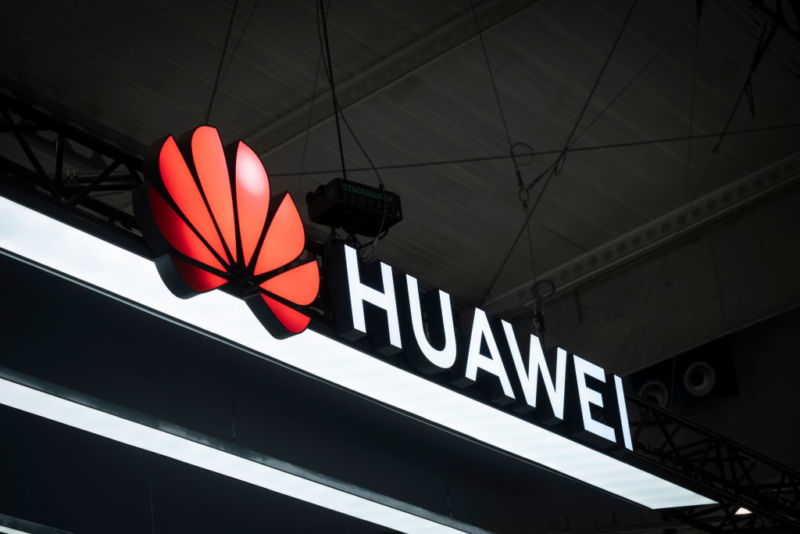
Huawei is expected to be hit hard in the 2020 smartphone market thanks to the United States' export ban. After grabbing the #2 smartphone vendor spot in 2019, a new report from The Information (subscription required) claims Huawei expects to have a much rougher 2019, as the effects of the export ban really start to take hold. According to the report, Huawei expects to ship 190-200 million smartphones in 2020, which, compared to its 2019 shipments of 240 million, would be a 20-26 percent drop.
The export ban makes it illegal for US companies to provide Huawei with parts and services, cutting the company off from a significant part of the smartphone industry. Huawei's lack of access to US technology doesn't really affect its ability to make smartphone hardware. Huawei says it has been preparing for a ban like this and now regularly builds smartphones with zero US components, so 2020 should be business as usual. The US export ban mainly affects Huawei's access to smartphone software—the ban blocks the company from accessing Google's Android ecosystem including the Play Store and its millions of apps, Google Play Services, and killer Google apps like Gmail, Google Maps, Chrome, YouTube, the Google Assistant, and more. The ban also means Huawei can't carry US-made apps in its app store, like Facebook, WhatsApp, Instagram, Snapchat, Netflix, Uber, Lyft, Amazon, Twitter, and a ton of other apps.
China takes up 60 percent of Huawei's shipments, according to Counterpoint Research, and this large chunk of Huawei's business should be unaffected by the ban. Google doesn't do much business in China, so the lack of Google's ecosystem is a reality in China no matter what. Many of the top-tier US apps don't have much of a foothold in China either, thanks to a market preference for homegrown apps and stringent government-spying requirements for user data that keep out many US companies.
While Huawei will be fine in China, its international business is under real threat due to the lack of apps. Huawei's international business makes up 40 percent of its shipments, and if it holds on to a significant chunk of this in the non-Google era, it would be one of the biggest sellers of non-Google Android devices, next to Amazon. Amazon has its own Android ecosystem that most people would agree is inferior to Google’s, but Amazon only sells sub-$200 tablets, which justifies having a limited software ecosystem. Amazon's one attempt at a smartphone, the Fire Phone, was a spectacular failure, thanks in part to a severe lack of apps. Huawei's first phone without Google apps, the Mate 30 Pro, costs around $1,200, and with a price tag like that, I'd imagine consumers will be a lot more demanding.Those 20 percent of international sales won't be all non-Google phones, either. Despite the export ban happening in the middle of 2019, we're still waiting to see how things play out for Huawei. The ban only affects newly-developed devices, and the realities of the smartphone development pipeline mean Huawei's first non-Google phone only arrived in September 2019, and older devices like the P30 Pro are still available everywhere with the Google apps. We'll have to wait for all the older, Google-ified Huawei phones to die off before we see what the export ban will really do to Huawei.
2020-03-09 23:05:00Z
https://arstechnica.com/gadgets/2020/03/huawei-reportedly-expecting-a-20-drop-in-phone-sales-thanks-to-export-ban/
Read Next >>>>
Bagikan Berita Ini














0 Response to "Huawei expects a 20% drop in phone sales, thanks to lack of Google apps - Ars Technica"
Post a Comment